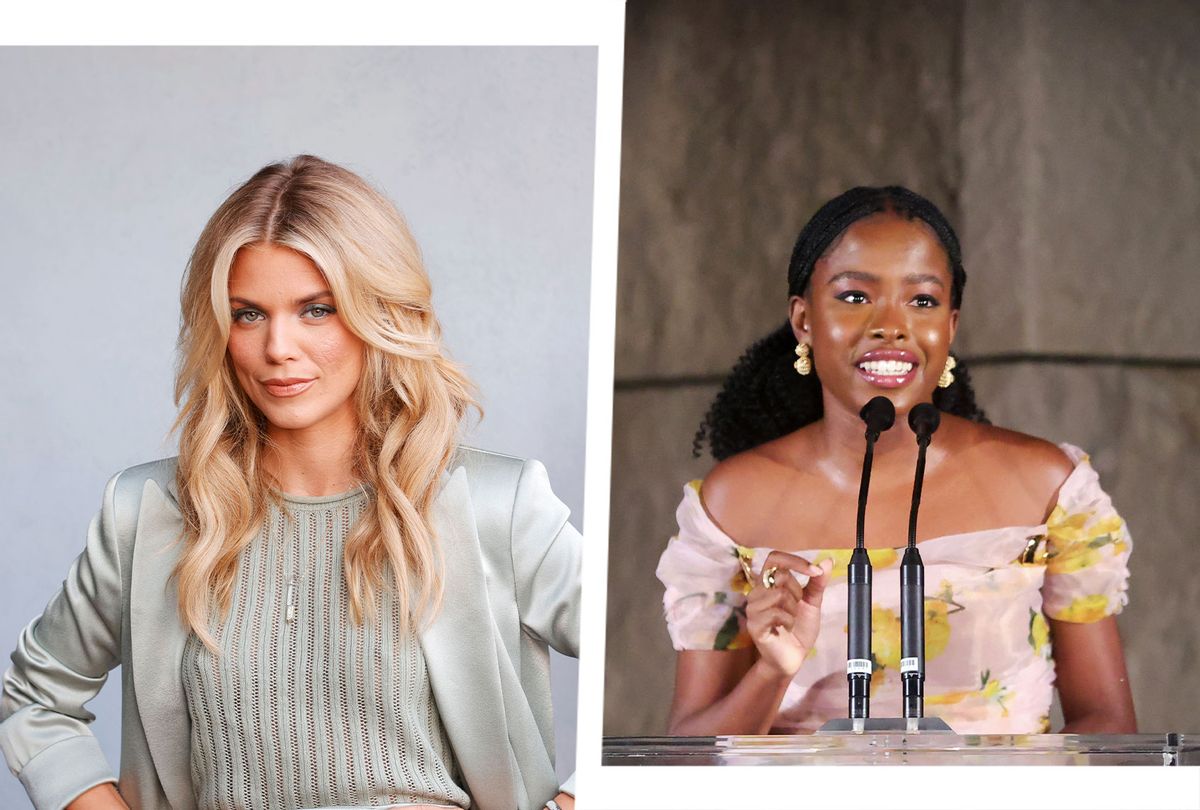The first day Vladimir Putin sent troops to invade Ukraine, actor AnnaLynne McCord thrust herself onto the internet stage by reciting a poem she had written addressed to the Russian President. With sing-song rhyme, random capitalization and phrases like "fealty" and "Imbue Ascription," she expressed wistful sadness that she had not been Putin's mother: "born too late . . . I would have loved you so." If only she could have snuggled him into being a better person.
Way to blame a war started by a man on mothers. Perhaps she'd been reading Freud.
Around the same time, Ilya Kaminsky's poem "We Lived Happily During the War" went viral. Similarly, in the wake of mass shootings and other tragedies in 2016, a poem called "Good Bones" by Maggie Smith went, as she put it "legit viral on Twitter." Though the response to McCord's Putin poem was swift and almost universal condemnation, combined with confusion, the circulating of Kaminsky's poem, the opening verse of his 2019 book "Deaf Republic," which won the National Book Award, generated a more mixed response.
Some internet commenters seemed to completely (perhaps willfully) misread the Ukraine-born poet's work as somehow pro-war. Others misgendered Kaminsky as a woman. Poets, in only the way that poets can, expressed annoyance at seeing the poem so many times on their timeline.
What is it about poems that lend themselves to wartime? Why does a celebrity think they can write them — and everyone think they can know one better than the actual writer? And why do we turn to poems now?
Related: Dear Hollywood: In times of international crisis, speechlessness is always preferable to stupidity
One of my degrees is in poetry. I don't always admit that, due to the response it elicits. I stopped writing poems, in part because no one read them. But in part because everyone seemingly wrote poetry or thought they could.
Poems are brief. Not all of them, of course. But as art forms go, you can spend a much smaller amount of time on a poem than, for example, a novel, and still walk away with an A in Creative Writing class. (I think some of the people I went to school with chose poetry specifically for its brevity.)
Brief doesn't mean easy, though. The long history of poetry includes a myriad of complicated forms, not to mention essential and often genre-specific conventions such as musical language, imagery and line breaks. War is a part of that history. Poets from Wilfred Owen to Robert Burns served and wrote about it. Stephen Crane was a war correspondent, as was Yusef Komunyakaa.
We write about what we know. Not only what we know — but experience shades the art, always. One does not have to fight in a war to feel the impact of it, which lingers for generations. And many of war's causalities are continually throughout time women and children.
As Wisława Szymborska, the Nobel Prize-winner born in Poland in 1923, wrote: "After every war / someone's got to tidy up." Poet Eavan Boland lived through the Troubles in Ireland and wrote of them. Shara Lessley wrote of witnessing the Arab Spring in her book "The Explosive Expert's Wife": "I don't know / where the dead go, only that / you promise to make it home."
Poetry is a form of witness. It's observational but it's also emotional, expressing the unspoken. War is senseless. So — some might say — is some poetry.
But it seizes a feeling that is hard to explain. Poetry tries to make the unrelatable believable, tangible through metaphor, comparison and story. A simple story, simple music for a violence that is rarely simple at all. So, Jane Kenyon ends her poem "Three Small Oranges," with a brief, stark description of a market bombed in Baghdad:
where yesterday an old man
carried in his basket a piece of fish
wrapped in paper and tied with string,
and three small hard green oranges.
As a longtime teacher (and once professor) of creative writing, I tell my students: The more specific you are, the more universal your words are. Students, perhaps especially beginning writers (perhaps McCord?), want to reach the whole world. But the way to do that is to show your small corner of it as specifically and unflinchingly as you can. People will see themselves there.
Want a daily wrap-up of all the news and commentary Salon has to offer? Subscribe to our morning newsletter, Crash Course.
The narrator of Kenyon's poem is only listening to the radio, which carries news of the war far away — but the speaker of Kaminsky's poem has lived through conflict first-hand, expressing the weariness of war and regret for their inaction and powerlessness: "I took a chair outside and watched the sun." As interpreted by the poetry podcast "On Being," the speaker doesn't "get involved. Instead they stayed outside and caught the sun. They lived happily during the war, and are now saying (forgive us)."
Does poetry move people to help? I hope so. William Carlos Williams wrote: "It is difficult to get the news from poems"—but it is possible to get at least a fragment of experience and a whole lot of feeling.
"To be good is to be larger than war," first-ever United States Youth Poet Laureate Amanda Gorman wrote in a piece from her collection "Call Us What We Carry."
Does poetry move people to change?
On one hand, anyone thinks they can write it. But on the other: Poetry is the people's art form. Many people do it. Or, try to. And there's beauty in the trying, in the persisting. There's hope. Poetry is proof we sing on.
More stories like this
- Amanda Gorman's poetry shows why spoken word belongs in school
- Imagination is "critical" to activism
- D.H. Lawrence's war poems published uncensored for first time



Shares